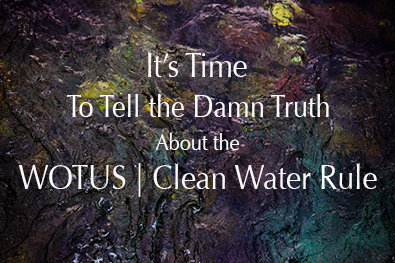This was written a few weeks ago for the launch of Swing the Fly; several friends have suggested I post it here to share the message. A bit long in the tooth for the blog, but what the hell.
Complacent No More
Making the Case for Getting Off the Conservation Sidelines
When friend and fly fishing mentor John Whitehead first handed me a fly rod (Cortland glass) in that Salt Lake City school yard way back in 1985, little did I know what impact that particular summer evening would have on the rest of my days.
To be fair, there were a few other notable events during 1985.
Reagan was starting his second term, Back to the Future was the top grossing movie at the box office (although Stallone was rocking it with Rambo: First Blood, Part II and Rocky V), and Bryan Adams (Heaven), A-Ha (Take on Me) and Huey Lewis (The Power of Love) ruled the pop charts.
Earthquakes rocked Mexico City, volcanoes erupted in Columbia, the prime rate dropped to 10% and the Dow crested 1300 for the first time. Terrorists terrorized in the Middle East, Soviet leaders reordered and singers crooned to end famine in Africa.
Not unexpectedly though, memories of those events are a blur while I remember buying my first rod that summer like it was yesterday.
Even though working seventy hours a week in a post-doc training program for peanuts left little cash for gear, I plunked down a fist full of scrimped and saved cash for my own store-brand glass rod (a Snow rod from the now defunct Angler’s Inn on Highland Drive). Back in those days a hundred bucks bought everything but waders and there was enough left over to snag a Crown Burger just up the road.
Water was abundant in northern Utah that year; Alta ski resort saw 711 inches of fluffy powder during the 1985-1986 season with two of the previous three seasons recording over 800 inches of snow. Life was grand for skiers and fish.
The climatological pendulum was still swinging from warnings about another looming ice age to prognostications of global warming that would end life as we knew it by 2000.
We fished with abandon, wandering all over northern Utah, the Snake River system in Idaho and the Greater Yellowstone neighborhood. The fishers we fished with and met on the river as well as the shop owners and guides whose businesses we frequented were concerned mainly with the next day’s float, matching the hatch and having plenty of cold beer in the cooler.
Waterway, fish and fisheries conservation wasn’t really on most fishers’ radar back then; it sure wasn’t on ours. Sure, a few guys we met were involved with Trout Unlimited, though we (mistakenly) slotted them into the tweed-wearing, pipe-smoking, long-in-the-tooth caricature of yesteryear’s Trout Unlimited member.
We assumed that with fish in our rivers and plenty of water; who needed to spend time, money and effort on conservation issues?
We were dead wrong. Fast forward to the summer of 2013.
Just yesterday one of the largest angler actions in modern history turned a (small but significant) page with the closure of the extended EPA comment period for Bristol Bay. As an angler you’d have to have lived under a rock for the past three or four years to not understand the issues at play in Alaska.
In fact, you’d have to be living under a rock to miss the tsunami of issues impacting fish and fisheries these days. News of issues ranging from dwindling stocks and returns to aging dams smothering spawning runs to epic fisheries mismanagement to infected salmon farms to fouled water clogs your inbox, sullies your fly fishing magazines and nags at your conscience.
You know fishers who have become greatly discouraged or even given up on battling these issues (and many others); I too have a few fishing friends who grow quiet and somber when campfire talk turns to the challenges facing steelhead and salmon today.
Yet there’s always potential for improvement and change, and thankfully, there are a number of dedicated teams working hard to improve conditions for fish and fisheries around the world. We’re going to share some of their stories here in Swing the Fly in upcoming issues.
We’ll invite the leaders of the Native Fish Society, the Wild Steelhead Coalition, the Steelhead Society of British Columbia and the North Atlantic Salmon Fund to present their most pressing issues and encouraging success stories.
There are a host of other groups successfully engaged in the fray; even our friends at Trout Unlimited have been tirelessly working on the Bristol Bay issue for years.
Most importantly, no angler today can afford to sit on the conservation sidelines any longer. The clock is ticking on too many critical issues to not get in the game at some level. Write a check, send an email, compose a letter or op-ed, monitor a river, restore a stream – the opportunities to engage are endless.
Recently while driving back from a river outing a friend responded to my encouragement to become more involved by saying he wouldn’t become engaged with battles he knows he can’t win. My response was to stop the truck, pull up my quote list and share this –
It is not the critic who counts; not the man who points out how the strong man stumbles, or where the doer of deeds could have done them better. The credit belongs to the man who is actually in the arena, whose face is marred by dust and sweat and blood; who strives valiantly; who errs, who comes short again and again, because there is no effort without error and shortcoming; but who does actually strive to do the deeds; who knows great enthusiasms, the great devotions; who spends himself in a worthy cause; who at the best knows in the end the triumph of high achievement, and who at the worst, if he fails, at least fails while daring greatly, so that his place shall never be with those cold and timid souls who neither know victory nor defeat. – Theodore Roosevelt
It’s indeed time to get back in the game. Just do it.

